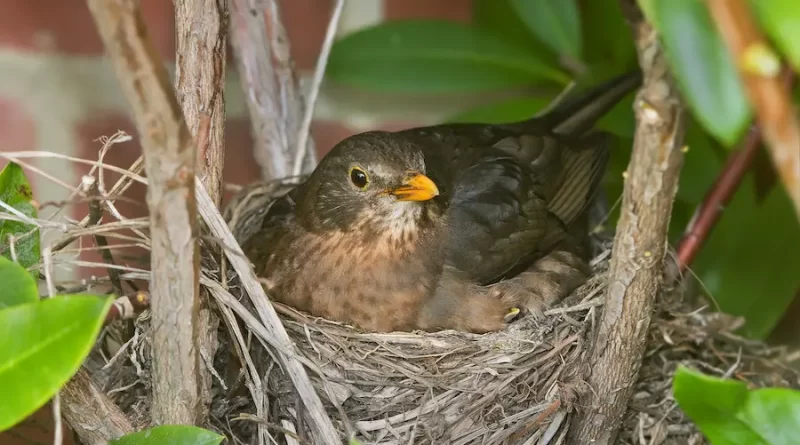8 Tips on How to Prevent Birds From Nesting Again
Here are a few tips on preventing birds from nesting on your property. First, light flashes make birds nervous. Pruning will also reduce potential nesting spots. You can also use a bird-repellent spray made from lemon or peppermint oil. It can be placed in a spray bottle and frequently applied to your patio and porch.
Decoy Birds Discourage Birds From Nesting
Pigeons often nest nearby our house or even inside. When it comes to pigeon nest removal or nest removal of any bird, you need to work hard and play smarter. One option to discourage birds from nesting is to use decoy birds that mimic natural predators. These can be placed in your yard and may prevent birds from nesting in your home. However, decoys only work for a few days, and you must reposition them periodically. This method does not permanently stop birds from nesting, but it is worth trying.
Decoys are made to resemble birds and come with reflective eyes and detailed bodies. They are also painted in water-proof paint. They also have a fin on the back of the head to frighten birds away. These decoys are effective, but they must be moved frequently, or they will get accustomed to them.
Light Flashes Make Birds Nervous
Light flashes are one way to scare off birds. This can be combined with sonic devices. These deterrents should be non-flammable and not entangle the birds. Other methods include surface repellers, which make birds avoid landing on surfaces. These repellers can be used outdoors or indoors and should be non-toxic, non-flammable, and safe to use around light bulbs.
Birds prefer a quiet environment and avoid sudden changes in light and noise. Light flashes, especially in large bursts, can cause a frightening reaction in birds and prevent them from nesting again. Other alternatives include small mirrors, reflective wind chimes, and aluminum foil dangling from a small mobile.
Pruning Reduces Nesting Spots
Pruning trees with nesting birds should be avoided during the breeding season. Most birds nest in trees from late spring to early summer. If the first clutch succeeds, they may lay a second or even a third. By mid-July, they will have fledged most of their young. However, nesting may stop as early as June in years with severe droughts.
Pruning trees and shrubs reduce the number of nesting sites available for birds. Dead trees and branches are also removed, reducing habitat and foraging opportunities. Some pruning techniques can result in losing more than 25% of a tree’s canopy, exposing nesting sites to predators and the elements. Pesticides and chemical fertilizers used during these activities can also cause health problems for wildlife.
Terminix(r) Commercial
You may want to use the services of a commercial pest control company. These companies offer a variety of treatment plans, including bait systems, encasements, and monitoring devices. These services are effective against various insects, including termites and bed bugs. Their programs vary based on location.
Keeping Cats Away From Nesting Areas
You can prevent your cat from making a nest by keeping them out of the nesting area. You can do this by putting up a chicken wire fence around the room and leaning it toward the cat. You can also install sprinklers that send a short but powerful jet of water at the cat whenever it enters the area. Citronella is also an effective deterrent for cats.
Another option is to let your cat out of the house before dusk. Cats are natural predators and can kill any bird, including the eggs and nestlings. This method may work for a while, but in the long run, your cat will tire of not being able to get to the nesting area.
Tempt Birds to a New Location
Since birds are drawn to tranquil environments, it is also crucial to maintain the area’s quietness. There are various ways to accomplish this. The most excellent strategy is continuously removing nesting supplies to deter birds from building their nests. The use of tiny mirrors or reflective wind chimes is one method. Hanging little mobiles with aluminum foil dangling from them is an alternative strategy.
Porcupine Wires
Porcupine wires, also known as bird spikes, are designed to deter birds from nesting on your property. They feature sharp stainless steel prongs that are fastened to a solid base. These devices can be installed on eaves and windowsills. However, the wires may gather debris over time.
Porcupine wires are available at most hardware stores or online. These products are made of heavy wires with prongs that project at various angles. Using these products will help keep your property free of unwanted visitors. By preventing them from nesting again, you can also prevent them from damaging your property.
Terminix(r) Commercial
You may want to use the services of a commercial pest control company, such as Terminix. These companies offer a variety of treatment plans, including bait systems, encasements, and monitoring devices. These services are effective against various insects, including termites and bed bugs. TheirTerminix’s programs vary based on location.

